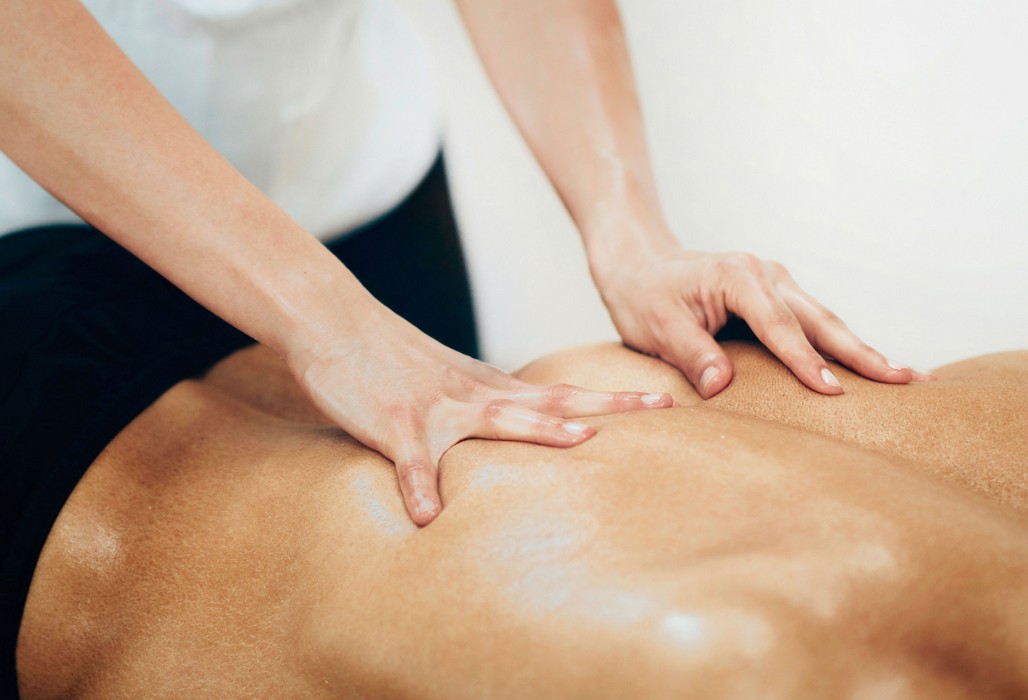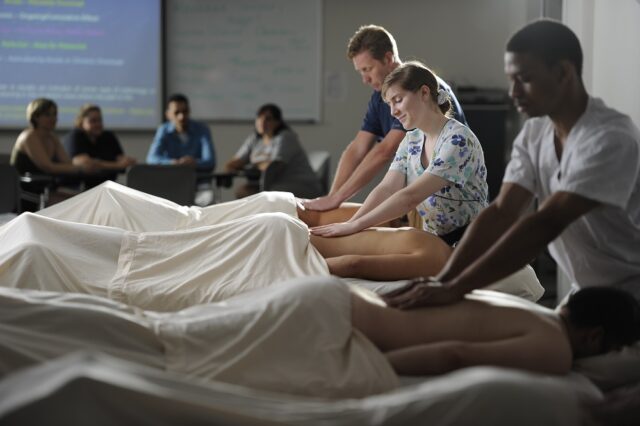Embarking on a journey to become a massage therapist can be a fulfilling and rewarding career choice. This profession offers the unique opportunity to make a positive impact on people’s lives by helping them manage pain, reduce stress, and improve overall well-being. However, starting a career in this field requires careful planning, dedication, and a clear understanding of the necessary steps and qualifications. By following a structured approach, you can set yourself up for success and build a thriving practice in the world of therapeutic massage.
What do you need to know about the educational path?

The first and most crucial step in pursuing a career in massage therapy is acquiring the proper education. Most regions require aspiring therapists to complete a formal training program that provides a solid foundation in both the theoretical and practical aspects of the field. These programs typically range from 500 to 1,000 hours of study, depending on local regulations and the specific requirements of the certification you seek. The curriculum generally covers essential topics such as anatomy, physiology, kinesiology, and various massage techniques, ensuring that you are well-prepared to work with clients safely and effectively.
In addition to the core subjects, many programs offer specialized courses that allow students to focus on particular areas of interest, such as sports massage, deep tissue therapy, or aromatherapy. These specialized courses can enhance your skills and help you stand out in a competitive job market. Furthermore, comprehensive programs often include training in ethics, business practices, and client communication, which are critical components of building a successful career in massage therapy. You can explore places like Therapy114 to find out what is the best massage job (마사지구인) you can get based on your knowledge, skills, and education.
What are the additional papers you need to get?

Once you have completed your education, the next step is obtaining the necessary certification and licensing to practice legally. The requirements for certification and licensure vary by region, so it’s essential to research the specific regulations in your area. In many places, aspiring therapists must pass a standardized exam, such as the Massage and Bodywork Licensing Examination (MBLEx) in the United States, to demonstrate their competence and readiness to practice.
Certification is more than just a formality; it serves as a mark of professionalism and credibility, assuring clients that you have met the rigorous standards required to provide quality care. In addition to passing the certification exam, you may need to obtain a license from your local or state regulatory body. This process typically involves submitting proof of your education, passing a background check, and paying a licensing fee. Keeping track of renewal requirements for both certification and licensure is crucial, as these credentials must often be updated periodically to maintain your legal status as a practicing therapist.
How to gain the needed experience?
After obtaining your certification and license, the next phase of your career involves gaining practical experience and building a client base. Many new therapists start their careers by working in established settings such as spas, wellness centers, or chiropractic offices. These environments provide valuable opportunities to hone your skills, learn from experienced professionals, and begin developing a loyal clientele. Working in an established practice also allows you to gain insights into the business side of massage therapy, such as scheduling, client management, and marketing.
As you gain experience, you may decide to specialize in a particular type of massage or therapy. Specialization can set you apart from other therapists and attract clients who are seeking specific treatments. Whether you focus on sports massage, prenatal therapy, or another niche, developing expertise in a particular area can enhance your reputation and lead to a more successful practice. Additionally, continuing education plays a vital role in staying current with industry trends and expanding your skill set.
What should you expect if you start your own practice?
For those with an entrepreneurial spirit, starting your own massage practice can be an exciting and rewarding endeavor. Owning a business allows you to have full control over your schedule, the services you offer, and the environment in which you work. However, starting a practice requires careful planning and a solid understanding of business principles. Key considerations include selecting a location, setting up a professional workspace, managing finances, and marketing your services to attract clients.
Choosing the right location is critical to the success of your practice. Whether you decide to operate out of your home, rent a space in a wellness center, or open your own standalone office, the location should be convenient for your target clientele and provide a relaxing, comfortable atmosphere. Setting up your workspace with the proper equipment, such as massage tables, linens, and oils, is essential for delivering high-quality care. Additionally, establishing a professional online presence through a website and social media can help you reach a broader audience and build your brand.
What do you need to be aware of while building your career?

While building your career, it’s essential to prioritize your own well-being. The work of a massage therapist can be physically and emotionally demanding, so taking care of your health is crucial to your long-term success. Regular exercise, proper nutrition, and adequate rest are important for maintaining the physical stamina required to perform your duties effectively. Additionally, practicing good body mechanics and taking breaks between sessions can help prevent injuries and reduce the risk of burnout.
Emotional well-being is equally important. As a therapist, you will work closely with clients who may be dealing with pain, stress, or emotional challenges. Developing healthy boundaries and practicing self-care techniques, such as mindfulness and relaxation exercises, can help you manage the emotional demands of the job. Seeking support from colleagues or mentors can also provide valuable perspective and encouragement as you navigate the ups and downs of your career.
Starting a career as a massage therapist involves a combination of education, certification, practical experience, and business acumen. Whether you choose to work in an established setting or start your own practice, the skills and knowledge you acquire along the way will equip you to make a meaningful impact on the lives of your clients. Balancing professional growth with personal well-being is key to building a successful and fulfilling career in massage therapy. Through dedication and continuous learning, you can thrive in this dynamic and compassionate profession.


